Physical Address
304 North Cardinal St.
Dorchester Center, MA 02124
Physical Address
304 North Cardinal St.
Dorchester Center, MA 02124
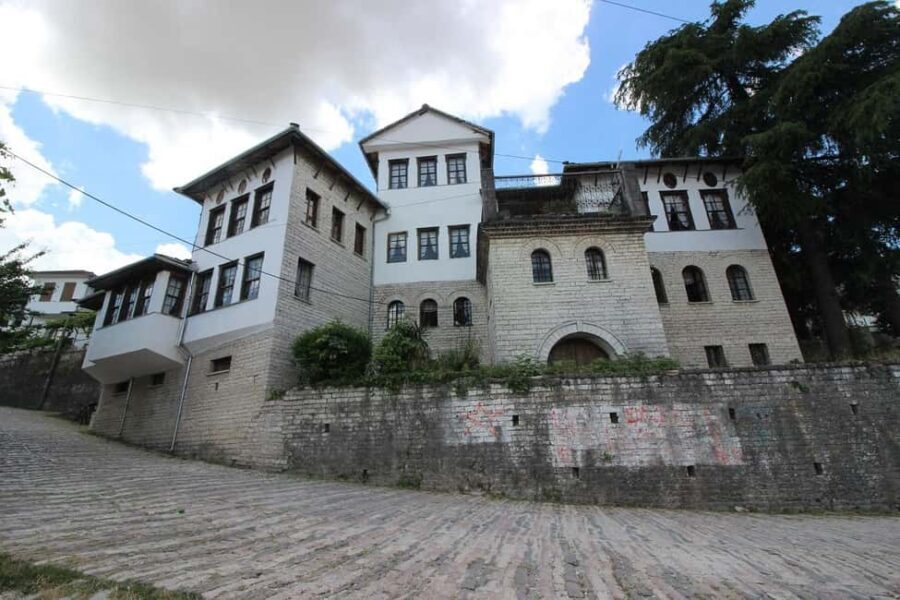
Discover Gjirokastra’s communist past with underground tunnels, memorials, and a historic home tour. Deep dive into Albania’s Cold War era for $106.
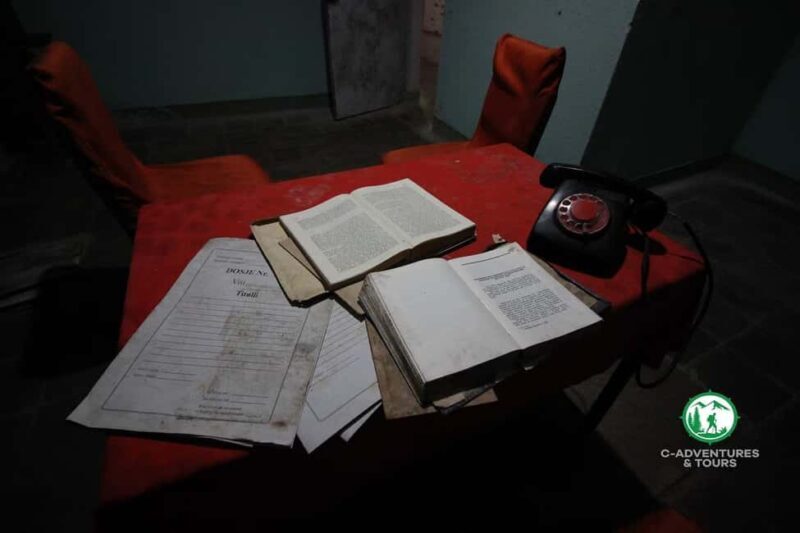
Exploring Gjirokastra through its Cold War history offers a fascinating glimpse into Albania’s secretive and often shadowy past. This 3-hour guided tour takes you underground, into memorials, and through the personal spaces of its most infamous figures. It’s a compelling way to understand how life was shaped under the dictatorship of Enver Hoxha—an experience that’s both eye-opening and thought-provoking.
What makes this tour stand out is the way it unlocks hidden stories behind concrete walls and quiet memorials. You’ll get to walk through an underground Cold War bunker, learn about the resilience of Albanian cultural icons, and see where Hoxha’s childhood home once stood. However, it’s important to consider that this tour isn’t wheelchair accessible, which might limit some visitors. Overall, it’s best suited for history buffs and those curious about Albania’s complex, often concealed, past.
You can check availability for your dates here: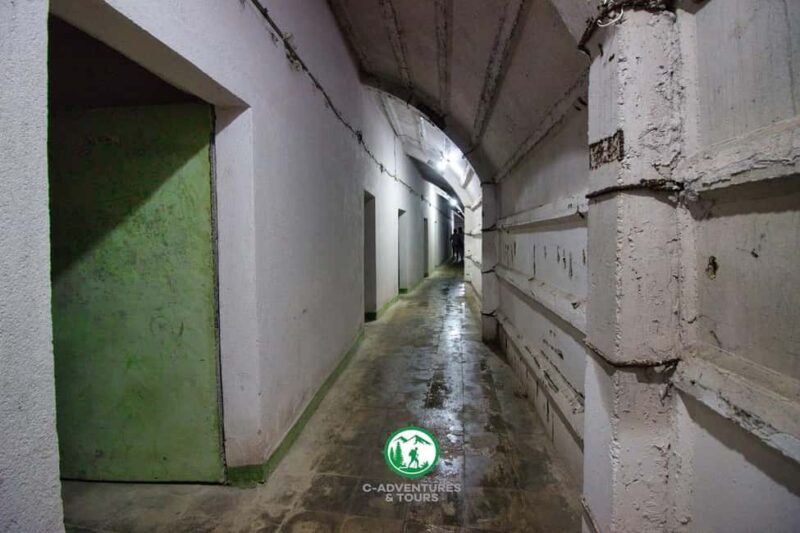
Looking to discover more of Gjirokaster? Consider these other city tour options

The tour kicks off with a visit to the Cold War Tunnel, a 1.5 km underground shelter built in the 1970s during a period of intense mistrust. This tunnel, hidden beneath the former Communist Party headquarters (which is now the Gjirokastra Municipality), was designed to shelter Albania’s top leaders during a potential attack.
Constructed amidst Albania’s diplomatic isolation—cutting ties with both the Soviet Union and China—this bunker is a physical reminder of the regime’s deep-seated paranoia. It contains 50 rooms, a water reservoir, ventilation, and electricity, offering a vivid glimpse of how regime members prepared for worst-case scenarios. You’ll learn that the military command was meant to be run from underground, making it a fortress of secrecy and control.
According to reviews, the guide “did an excellent job explaining how the tunnel was built during a time of deep mistrust,” and pointed out little details that you might overlook—like the ventilation system designed to keep the bunker livable for days or weeks. The stories shared about secret operations and regime-level paranoia add depth to the experience, making it more than just a walk through a tunnel.
Next, we visit the My Muse Memorial, dedicated to Musine Kokalari, Albania’s first female writer and a symbol of courageous resistance. Her story is gripping: persecuted for her political beliefs, she was sentenced to hard labor, yet her literary spirit endured.
Walking around the memorial, you’ll discover how Kokalari’s life symbolizes the fight for free expression during oppressive times. The guide shared her biography with passion—highlighting her resilience and literary legacy—helping us understand how intellectual resistance persisted despite brutal suppression.
From one reviewer: “The memorial moved me — it’s a reminder that even in dark times, creativity and defiance can survive.” This part of the tour offers a powerful contrast to the underground bunker, showcasing how resistance took many forms.
More Great Tours NearbyThe final stop is the Ethnographic Museum of Gjirokastra, housed in what was once Enver Hoxha’s childhood home. Here, you can piece together the early influences that shaped Albania’s long-time dictator—understanding his rise from a young boy to the leader who kept the country isolated for decades.
The guide explains Hoxha’s personal life, including betrayals of former allies and the tactics used to enforce strict ideological control. Visiting this site provides a closer look at the personal side of a man who ruled Albania with an iron fist. Reviewers note that the house’s transformation into a museum makes it accessible and engaging, offering insights into his upbringing.
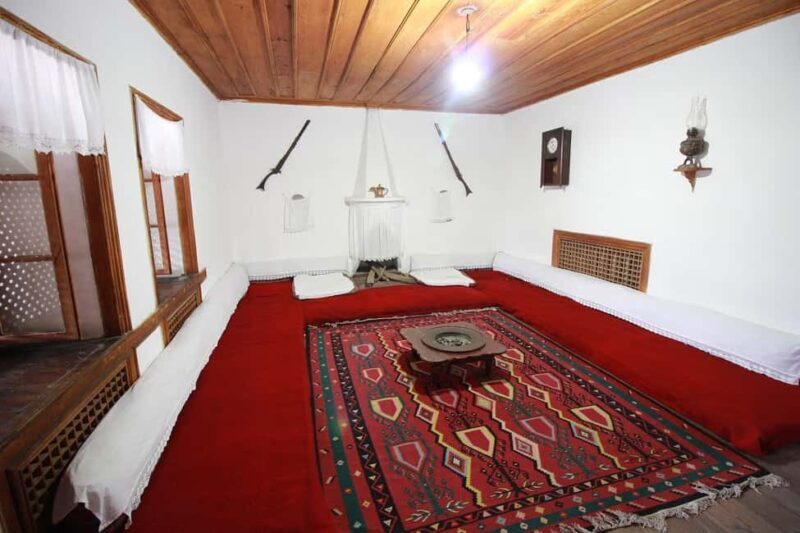
This Cold War-themed experience is ideal for history enthusiasts, cultural explorers, and anyone interested in understanding how totalitarian regimes shaped national life. It’s not just about viewing old sites—it’s about understanding their significance, the fears that fueled them, and the resilience of those who resisted.
The knowledgeable guides make these complex histories accessible and engaging, often sharing stories that aren’t found in history books. For example, one reviewer praised their guide, saying, “They brought the stories to life and made the history so much more personal.”
The inclusion of underground tunnels and personal homes makes this tour stand out from standard city walks. It’s a rare peek into Albania’s secretive past—an experience that leaves you with a clearer understanding of how dictatorship affected daily life, from political paranoia to cultural suppression.
For $106 per person, you receive a guided walking tour led by a local expert, along with entrance fees to the Cold War Tunnel, the My Muse Memorial, and the Ethnographic Museum. The tour is 3 hours long, with a small group size limited to 10 people, ensuring plenty of personalized attention.
The guide’s commentary provides valuable context, helping you interpret each site’s historical significance. The tour is available in English and Albanian—great for international visitors wanting a nuanced understanding.
Since the tour involves walking and underground visits, it’s advisable to wear comfortable shoes and be prepared for some uneven surfaces at the tunnel entrance. It’s also worth noting that wheelchair users are not suitable, due to the tunnel’s accessibility limitations.
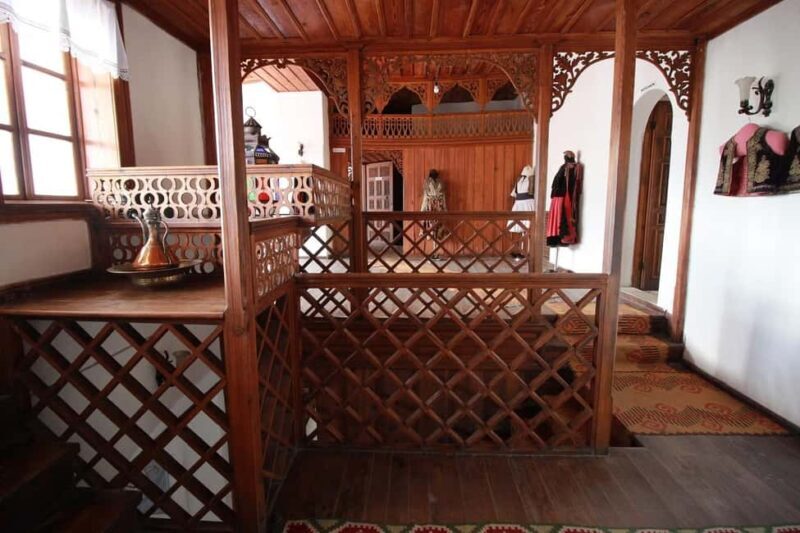
Absolutely, when you value authentic, insightful historical storytelling. The price reflects a well-curated experience that goes beyond surface-level sightseeing. You’re not just looking at old buildings—you’re hearing about the stories behind the concrete, understanding the fears and hopes of those who lived through it.
The tour’s small group setting enhances the chance to ask questions and dive deeper into Albania’s Cold War past. The knowledgeable guides and detailed site visits make this a compelling choice for anyone eager to see a different side of Gjirokastra—one filled with shadows, secrets, and resilience.
This Cold War City Tour in Gjirokastra is a standout experience for those wanting to understand how Albania’s oppressive past still echoes in its streets and stories. It’s a thought-provoking journey that combines underground tunnels, memorials, and historic homes into a cohesive narrative, revealing both the fears of the regime and the courage of its opponents.
The inclusion of authentic sites—like the underground bunker and Hoxha’s childhood home—adds a tangible layer to history, making the experience more immersive. The knowledgeable local guides bring this era to life with engaging stories, many of which aren’t easily found elsewhere.
While the tour doesn’t include accessible facilities for all, it offers great value for travelers interested in political history, Cold War relics, or cultural resistance. It’s especially suited for curious minds eager to see the hidden layers of Albania’s past and understand how history shaped the present.
Is the tour suitable for children or teenagers?
The tour is geared toward adults or older teenagers interested in history, as it involves walking and underground tunnels. Some younger children may find the sites less engaging or too intense.
How long does each site visit last?
The entire tour lasts about 3 hours, with visits to the Cold War Tunnel, the memorial, and Hoxha’s house. Time at each site may vary depending on the group’s pace and questions.
Are there any physical requirements or restrictions?
The tunnel isn’t wheelchair accessible, and some walking over uneven terrain is involved. Comfortable shoes are recommended.
Can I cancel the tour if my plans change?
Yes, full refunds are available if you cancel up to 24 hours in advance, making this a flexible option for travelers with uncertain schedules.
What languages are available for the guide?
Guides operate in English and Albanian, providing clear commentary and answering questions in either language.
What is the value of this tour for the price?
At $106, you get guided access to multiple historically significant sites, expert commentary, and a small group experience—excellent value for a deep dive into Albania’s Cold War history.
Is this tour suitable for those interested in cultural resistance?
Absolutely. The memorial to Musine Kokalari highlights the intellectual resistance during oppressive times, adding depth to the historical narrative.
Are transportation options provided?
The tour is a walking experience, starting from the main points of interest within Gjirokastra. You will walk between sites, so comfortable shoes are key.
This tour offers a rare chance to explore Gjirokastra’s shadowy Cold War past with authenticity and insight. For history lovers and curious travelers alike, it provides a memorable, meaningful glance into a chapter of Albania’s history that’s often left untold.
You can check availability for your dates here: